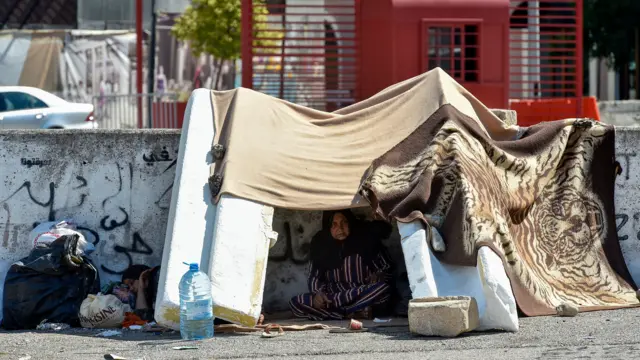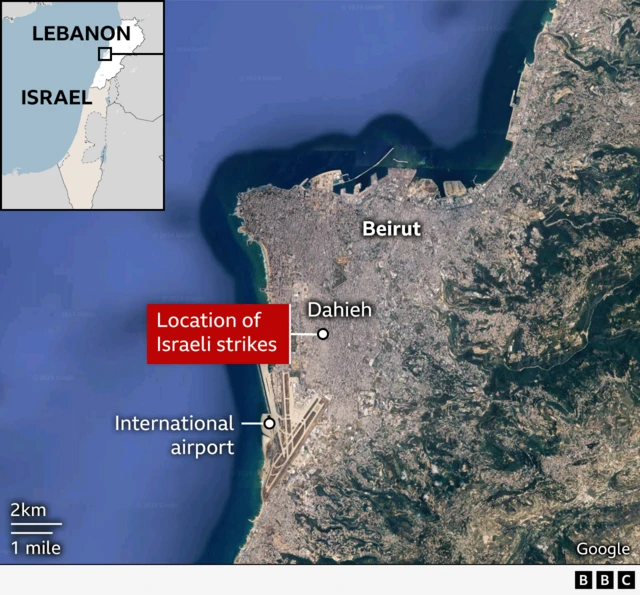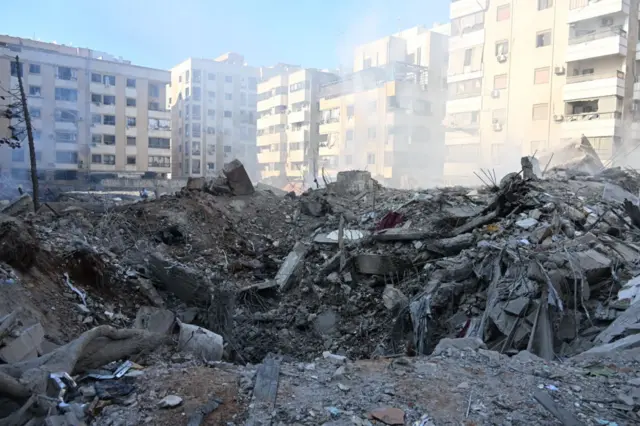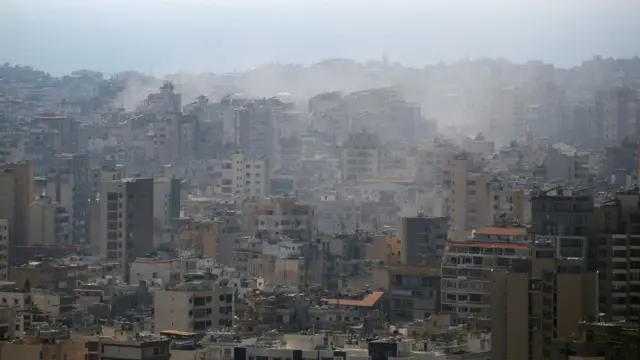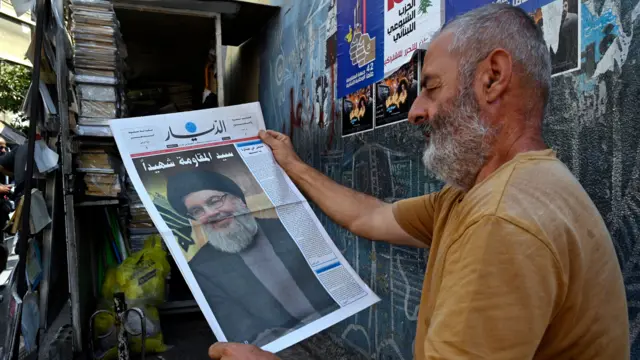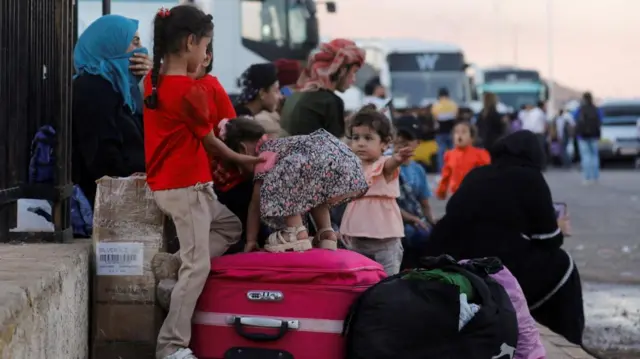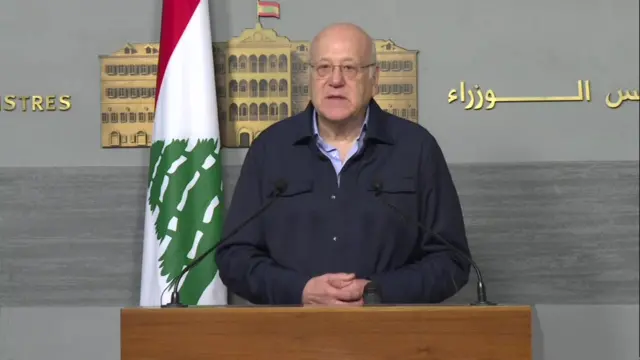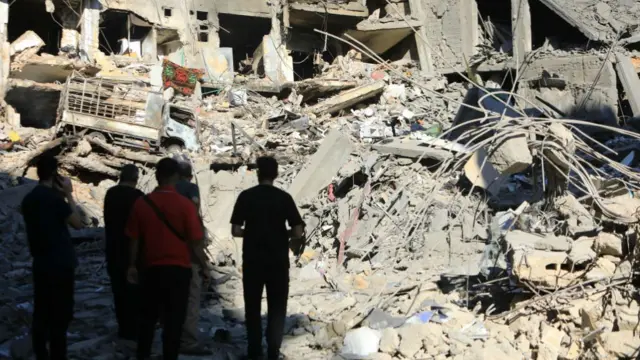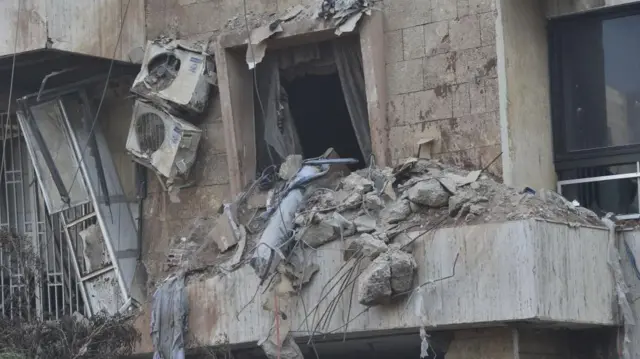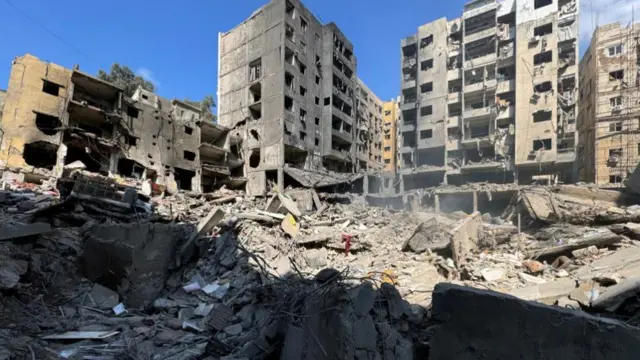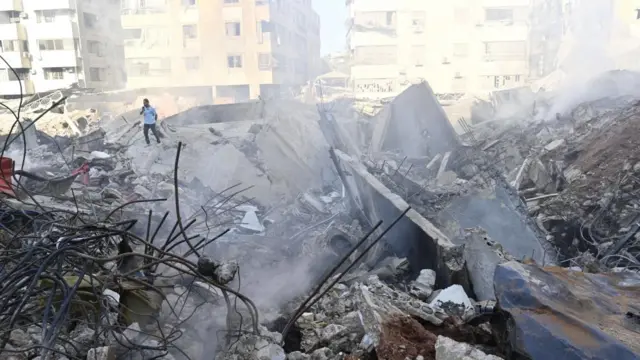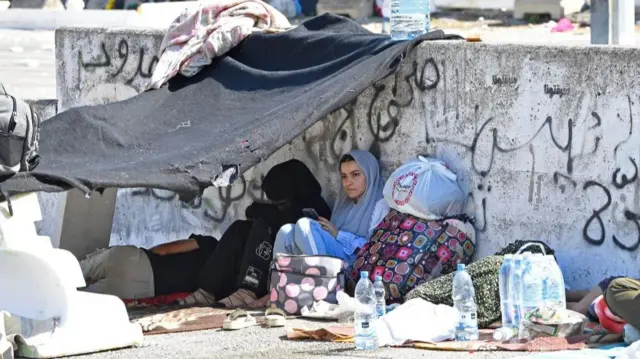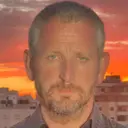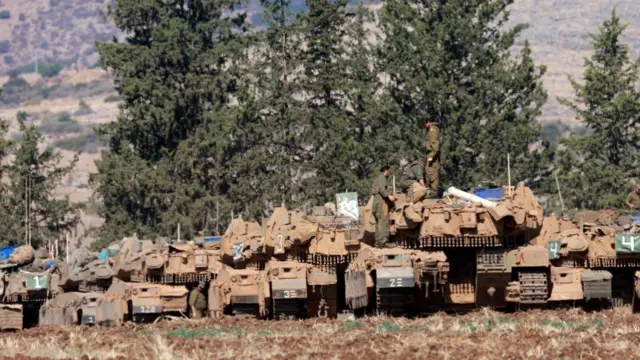Lebanese media says at least 17 from same family killed in Israeli air strikespublished at 14:35 BST 29 September 2024
Lebanese state media reports that at least 17 people from the same family have been killed in Zboud after Israeli air strikes in the Bekka Valley.
According to Lebanon's National News Agency, four people were also killed and several wounded after strikes on Halbata in Bekaa, with reports saying the strikes hit two homes in the village, as well as a tent for displaced Syrians.
These updates come after earlier reports by local media of at least 15 people killed in strikes across southern Lebanon and the Bekaa Valley.
